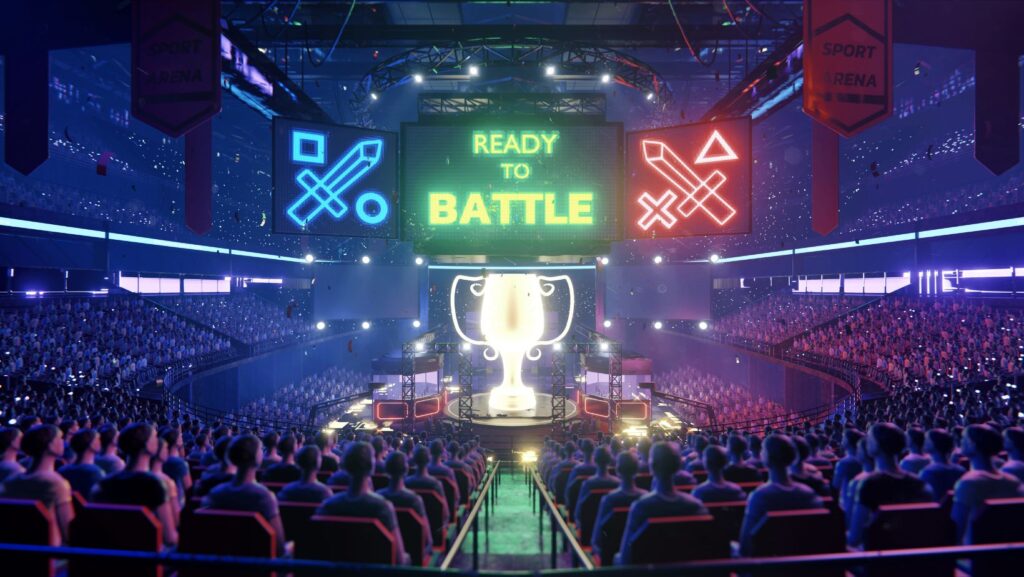 E-sports, short for electronic sports, have rapidly transformed from a niche hobby into a global phenomenon. These competitive video gaming events draw millions of viewers and participants, rivaling traditional sports in both popularity and prize money. With professional leagues, sponsorship deals, and dedicated arenas, e-sports have firmly established themselves in the mainstream entertainment industry. The allure of e-sports lies in their accessibility and diversity. From strategy games to first-person shooters, there’s a genre for every type of gamer. Players can compete from the comfort of their homes or in large-scale tournaments, creating a dynamic and inclusive community. As technology evolves, the future of e-sports promises even more growth and innovation, captivating audiences worldwide.
E-sports, short for electronic sports, have rapidly transformed from a niche hobby into a global phenomenon. These competitive video gaming events draw millions of viewers and participants, rivaling traditional sports in both popularity and prize money. With professional leagues, sponsorship deals, and dedicated arenas, e-sports have firmly established themselves in the mainstream entertainment industry. The allure of e-sports lies in their accessibility and diversity. From strategy games to first-person shooters, there’s a genre for every type of gamer. Players can compete from the comfort of their homes or in large-scale tournaments, creating a dynamic and inclusive community. As technology evolves, the future of e-sports promises even more growth and innovation, captivating audiences worldwide.
What are E-Sports
E-sports, short for electronic sports, refers to competitive video gaming where individuals or teams compete against each other in various game titles. These competitions can range from amateur matches to professional tournaments with substantial prize pools. E-sports includes a wide variety of genres, such as first-person shooters (FPS), multiplayer online battle arenas (MOBA), real-time strategy (RTS), and sports simulation. Professional players, organizations, and leagues are common within this industry, which mirrors traditional sports in structure and fan engagement.
History and Evolution of E-Sports
 The history of e-sports dates back to the early 1970s when the first known video game competition took place. In 1980, Atari’s Space Invaders Championship attracted over 10,000 participants, marking a significant milestone in competitive gaming. The 1990s saw the rise of PC gaming, with titles like Doom and Quake gaining popularity in competitive circuits. The establishment of the Cyberathlete Professional League (CPL) in 1997 provided the first organized e-sports league, setting the stage for future growth. In the 2000s, e-sports experienced exponential growth, fueled by broadband internet access and the popularity of games like StarCraft and Counter-Strike. The emergence of live-streaming platforms such as Twitch in 2011 revolutionized viewer engagement, making e-sports more accessible to global audiences. Major sponsorships and media partnerships further legitimized e-sports as a professional field. Today, e-sports boasts a thriving ecosystem, with well-known franchises and tournaments like League of Legends World Championship, The International for Dota 2, and the Overwatch League. The transition from small-scale events to stadium-filled spectacles highlights the evolution of e-sports, cementing its place within the entertainment industry.
The history of e-sports dates back to the early 1970s when the first known video game competition took place. In 1980, Atari’s Space Invaders Championship attracted over 10,000 participants, marking a significant milestone in competitive gaming. The 1990s saw the rise of PC gaming, with titles like Doom and Quake gaining popularity in competitive circuits. The establishment of the Cyberathlete Professional League (CPL) in 1997 provided the first organized e-sports league, setting the stage for future growth. In the 2000s, e-sports experienced exponential growth, fueled by broadband internet access and the popularity of games like StarCraft and Counter-Strike. The emergence of live-streaming platforms such as Twitch in 2011 revolutionized viewer engagement, making e-sports more accessible to global audiences. Major sponsorships and media partnerships further legitimized e-sports as a professional field. Today, e-sports boasts a thriving ecosystem, with well-known franchises and tournaments like League of Legends World Championship, The International for Dota 2, and the Overwatch League. The transition from small-scale events to stadium-filled spectacles highlights the evolution of e-sports, cementing its place within the entertainment industry.
The E-Sports Ecosystem
Major E-Sports Games and Genres
E-sports encompass a variety of games and genres, each attracting dedicated players and enthusiastic audiences. Key genres include first-person shooters like Counter-Strike: Global Offensive and Call of Duty, MOBAs like League of Legends and Dota 2, and sports simulations like FIFA and NBA 2K. The diversity of games ensures broad appeal, catering to different player skills and preferences. These genres not only define the gameplay but also shape the competitive strategies unique to each type.
Players: Gamers, Teams, and Leagues
 The e-sports ecosystem thrives on its key players: gamers, teams, and leagues. Professional gamers, often specializing in specific titles, dedicate substantial time to mastering their craft. Teams, comprising several gamers, collaborate to compete in tournaments, enhancing their collective performance and strategy. Prominent teams include Team SoloMid and Fnatic, which have heightened the competitive field. Leagues organize structured competition, providing a platform for regular gameplay and elevating the e-sports industry’s status. Notable examples include the Overwatch League and the League of Legends Championship Series. These leagues maintain consistent rules, schedules, and prize structures, fostering a professional environment.
The e-sports ecosystem thrives on its key players: gamers, teams, and leagues. Professional gamers, often specializing in specific titles, dedicate substantial time to mastering their craft. Teams, comprising several gamers, collaborate to compete in tournaments, enhancing their collective performance and strategy. Prominent teams include Team SoloMid and Fnatic, which have heightened the competitive field. Leagues organize structured competition, providing a platform for regular gameplay and elevating the e-sports industry’s status. Notable examples include the Overwatch League and the League of Legends Championship Series. These leagues maintain consistent rules, schedules, and prize structures, fostering a professional environment.
E-Sports Tournaments and Events
E-sports has grown into a dynamic and influential industry with an ever-expanding global audience. The rise of large-scale tournaments and professional leagues underscores its significance in the entertainment world. As the industry continues to innovate and evolve, it offers exciting opportunities for gamers, teams, and fans alike. With such a robust ecosystem in place, e-sports is set to remain a major player in the digital age.



